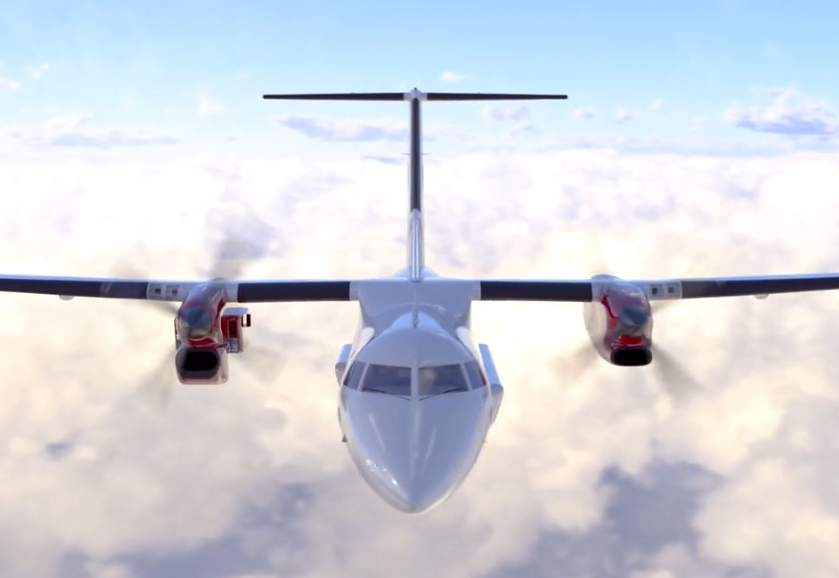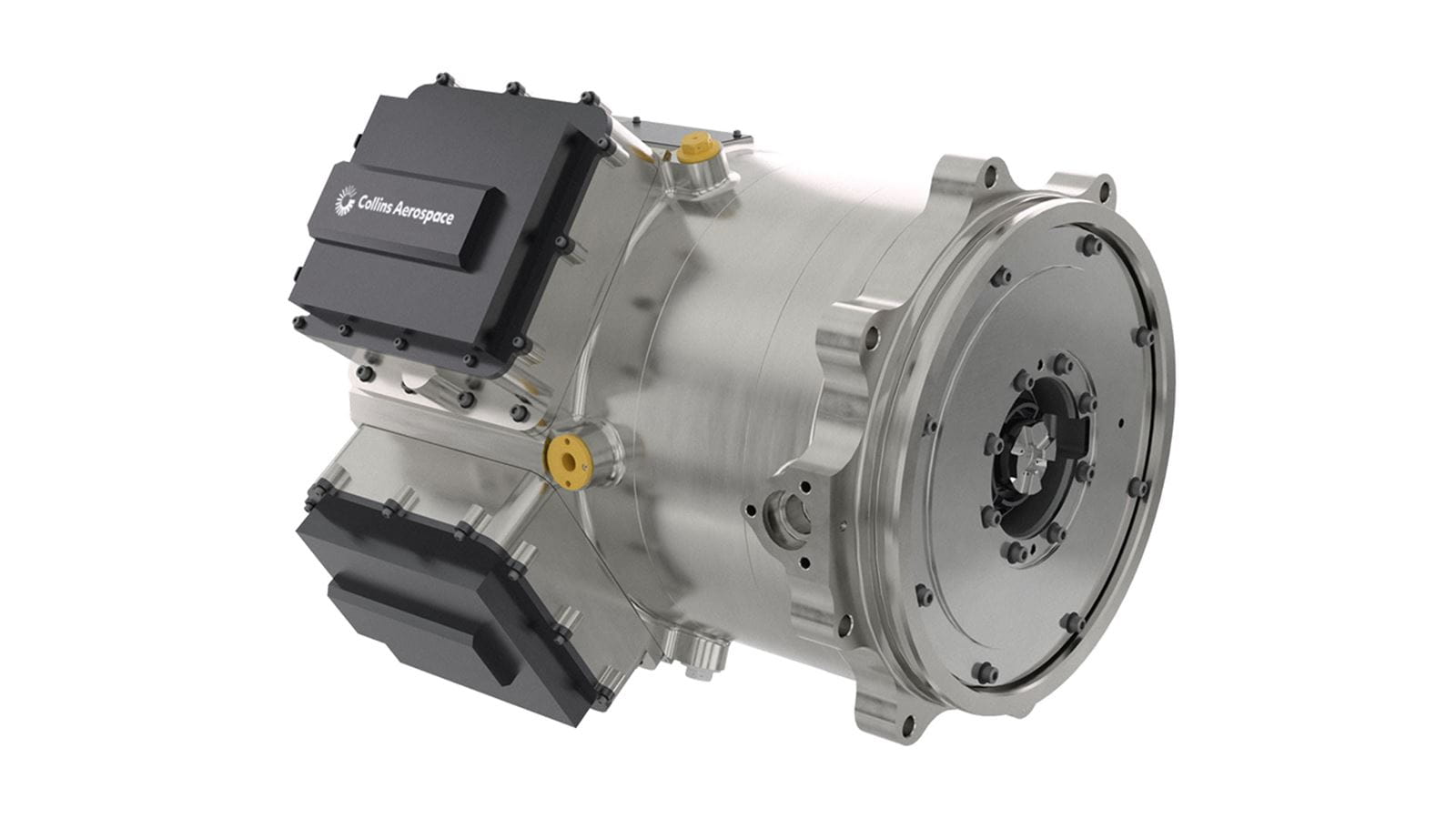
LE BOURGET—Collins Aerospace has completed a full-rated power test of its 1-megawatt electric motor, passing a key milestone on the path toward development of the Hybrid-Electric Propulsion (HEP) flight demonstrator, a modified De Havilland Canada Dash 8-100 regional turboprop.
The company said at the Paris Air Show here that compared to its most advanced electric motor generators currently flying, the new motor will deliver four times the power and twice the voltage, with half the heat loss and half the weight.
The motor and its controller have been designed and built by Collins in the UK, which is completing motor and drive integration testing at the University of Nottingham’s Institute for Aerospace Technology.

To be modified by De Havilland Canada, the Dash 8 HEP is designed to demonstrate a parallel hybrid system sized to power current and future regional aircraft, as well as prove technology elements for potential parallel and series hybrid systems for both larger and smaller aircraft. The HEP, which was launched in July 2021 with C$163 million ($125 million) in funding support from the Canadian federal and Quebec provincial governments, is targeted at a 30% reduction in fuel burn and emissions over a 250-nm flight.
The improved efficiency is expected to be achieved by downsizing the turbine engine, using the electric motor to augment power during takeoff and climb, and enabling the turbine to be optimized to operate at a constant full-power setting throughout the cruise. One of the demonstrator’s two Pratt & Whitney Canada (P&WC) PW120-class turboprops will be replaced by a 2-megawatt parallel hybrid-electric powertrain. This comprises a 1-megawatt P&WC-developed thermal engine, the 1-megawatt, 1-kilovolt Collins electric drive, and a battery system supplied by Swiss startup H55.
Initial low-speed runs of the thermal engine were conducted at a P&WC facility in Longueuil, Quebec, last December, and testing of the combined hybrid-electric propulsion system—including both thermal engine and 1 megawatt motor—are set to continue through 2023. Following integration of the propulsion system and batteries into the Dash 8-100, flight testing is expected to begin in 2024.
